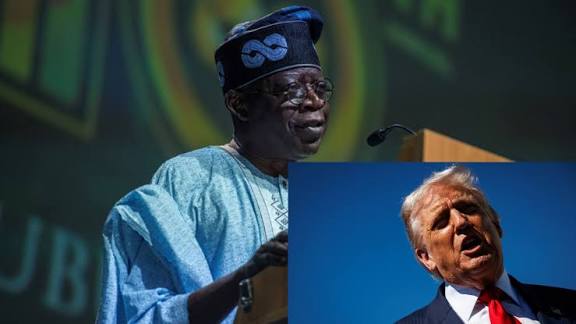News Investigators/ The Tinubu Media Force (TMF) has urged the United States to support President Bola Tinubu’s reforms rather than promote misleading narratives about Nigeria.
The National Coordinator of the group, Gbenga Abiola, made the call in a statement on Tuesday in Lagos.
Mr Abiola said the Tinubu administration had demonstrated unwavering commitment to stabilising the economy, enhancing national security, and restoring global confidence in Nigeria.
He said that instead of issuing negative or divisive remarks, the U.S. and other international partners should engage Nigeria constructively to advance shared democratic and economic values.
According to him, Nigeria remains the anchor of Africa, and its stability is vital to the peace and progress of the continent.
Mr Abiola said President Tinubu’s leadership had placed Nigeria on the path of renewal and sustainable growth through the Renewed Hope Agenda.
He explained that the administration inherited deep-rooted socio-economic challenges, but had begun to reverse decades of weak governance through bold policy interventions.
The TMF coordinator said the government had strengthened national security architecture, improved intelligence coordination, and prioritised the welfare of security personnel.
According to him, official data show that the armed forces have neutralised over 6,200 terrorists, arrested 14,000 suspects, and rescued about 5,000 kidnapped victims within two years.
He added that the national defence budget rose from N1.25 trillion in 2023 to N4.91 trillion in 2025, the largest allocation in Nigeria’s history.
Mr Abiola said that annual police recruitment had also been tripled from 10,000 to 30,000 personnel to improve community policing and boost internal security nationwide.
He noted that these initiatives had led to a marked decline in coordinated attacks and bandit activities in the North West and North Central regions.
The media force coordinator urged the U.S. to acknowledge these measurable achievements and refrain from making statements capable of distorting Nigeria’s image internationally.
Mr Abiola described the claims of targeted killings of people of a particular faith in the country as false, misleading, and potentially divisive.
He said there was no credible evidence to support allegations of Christian genocide, adding that reported incidents were isolated criminal acts and not products of religious intolerance.
Mr Abiola stressed that all acts of violence in Nigeria were treated as national crimes, devoid of ethnic or religious colouration.
He emphasised that President Tinubu’s government had not introduced or supported any policy that encouraged sectarian persecution or discrimination.
According to him, Nigeria’s strength lies in its diversity, which continues to underpin its unity, democratic growth, and national development.
Mr Abiola warned that any attempt to destabilise Nigeria could have serious consequences for the stability and prosperity of the African continent.
He called on ECOWAS and the African Union to protect the continent’s sovereignty and defend its image against external misinformation.
Mr Abiola reaffirmed that Nigeria, as Africa’s most populous nation, deserved respect, collaboration, and fair global engagement.
According to him, a prosperous and peaceful Nigeria guarantees a stable Africa, while foreign interference could undermine both.
NAN


